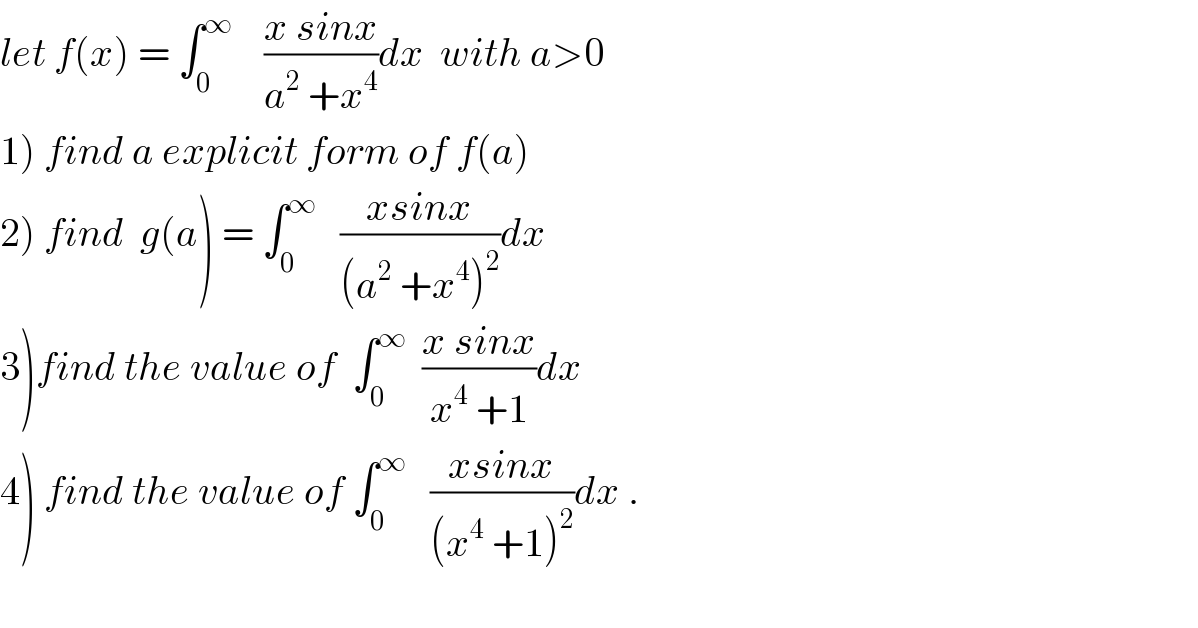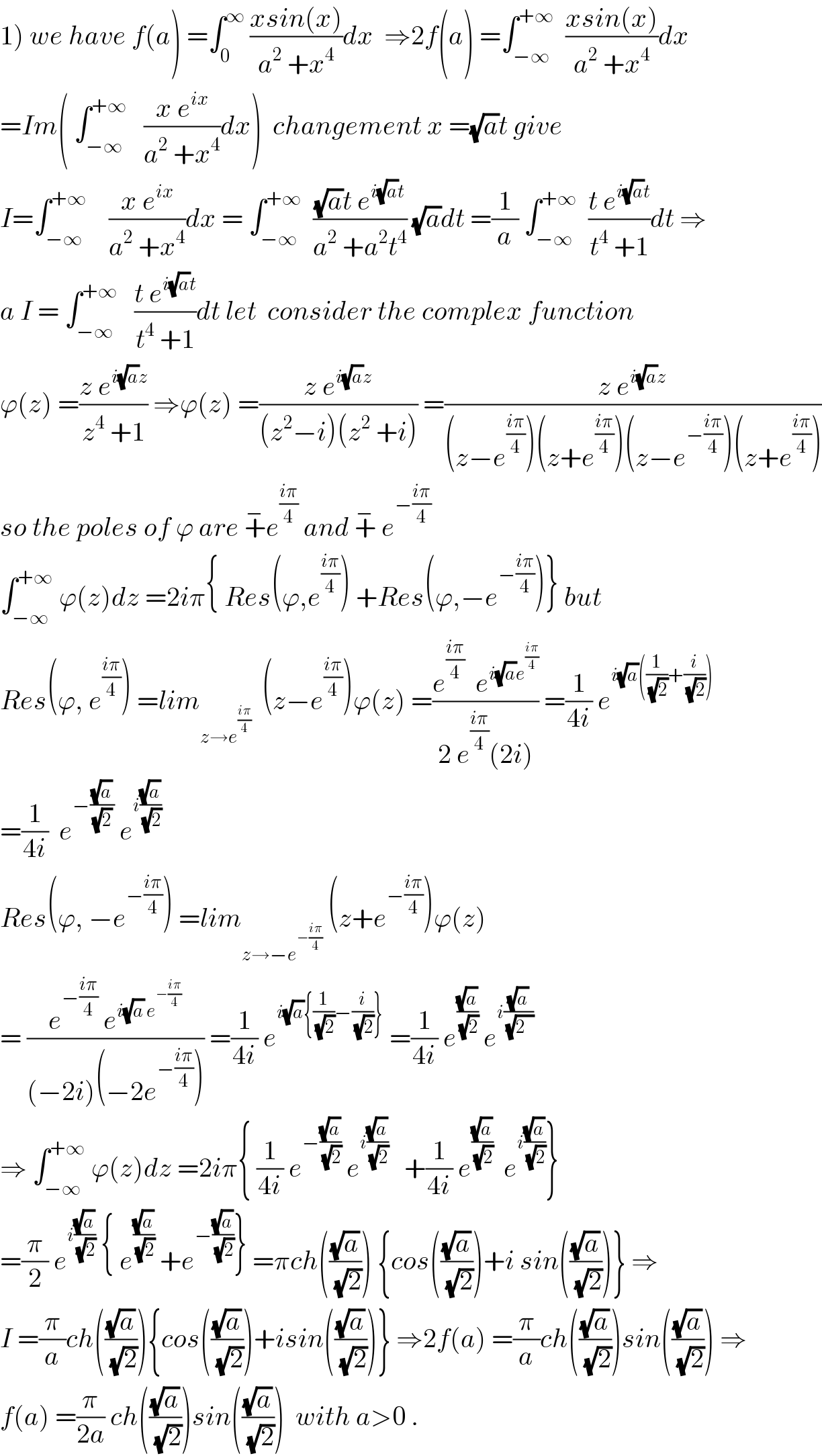
Question and Answers Forum
Question Number 44466 by maxmathsup by imad last updated on 29/Sep/18

Commented byabdo.msup.com last updated on 29/Sep/18

Commented bymaxmathsup by imad last updated on 03/Oct/18

Commented bymaxmathsup by imad last updated on 04/Oct/18

Commented bymaxmathsup by imad last updated on 04/Oct/18

